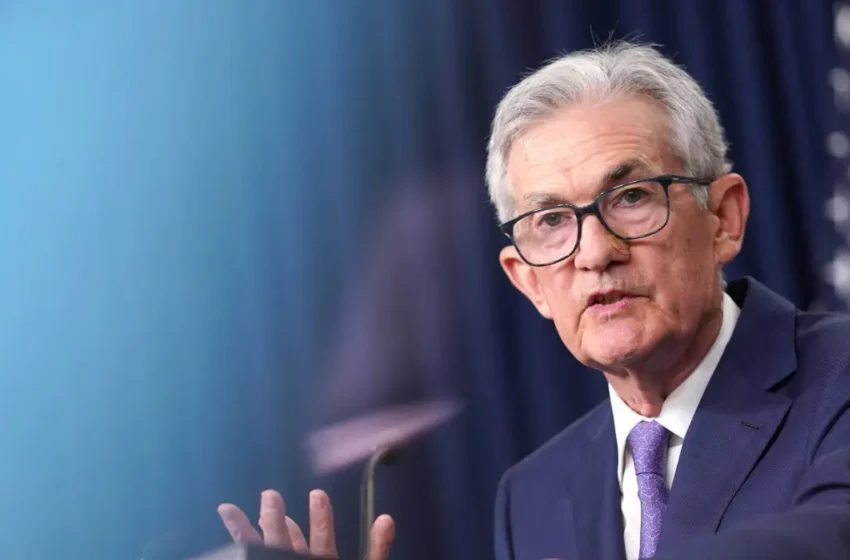Wintermute CEO Refutes Rumors of Collapse; Comparisons Made to FTX
Crypto Sector May See Looser Rules Says Fed Chair Jerome Powell
(Originally posted on : Crypto News – iGaming.org )
Federal Reserve Chair Jerome Powell suggested a shift in how regulators treat digital assets, signaling that some restrictions on banks dealing with crypto could ease. Speaking at the Economic Club of Chicago, he acknowledged that the industry has changed and regulators are adjusting.
Good to Know
- Jerome Powell says crypto oversight could ease as the market matures.
- Congress is revisiting stablecoin legislation after earlier efforts stalled.
- Powell warns innovation must not undermine financial stability.
“We took a pretty conservative and other banking regulators took an even more conservative perspective on the guidance and rules we imposed on banks,” Powell said. “I think there’ll be some loosening of that.”
He also reflected on crypto’s troubled past, recalling a stretch defined by fraud and company failures. That period led to closer scrutiny from regulators, including the Fed’s collaboration with Congress on a stablecoin framework. But Powell admitted those earlier efforts didn’t result in new laws: “We were not successful.”
Today, however, the tone is shifting. Powell noted that digital finance is no longer treated as a fringe sector and is becoming part of the broader financial system. “The climate is changing and you’re moving into sort of more mainstreaming of that whole sector,” he said.
New players only. Exclusive Welcome Bonus of up to $2,500
Stablecoins remain a key focus in Washington. Powell pointed out that both the Senate and House are again considering legislation that would introduce rules around their use. He said developing a legal structure for stablecoins is necessary and should include clear disclosures and safeguards.
“We need that,” he said, referring to the push for new regulation. He also stressed that any rulebook must strike a balance—encouraging innovation without putting the wider banking system at risk. According to Powell, stablecoins could see wider adoption, but only if they meet consumer protection standards and maintain transparency.







 Bitcoin
Bitcoin  Ethereum
Ethereum  Tether
Tether  XRP
XRP  Solana
Solana  USDC
USDC  Lido Staked Ether
Lido Staked Ether  TRON
TRON  Dogecoin
Dogecoin  Cardano
Cardano  Wrapped stETH
Wrapped stETH  Wrapped Bitcoin
Wrapped Bitcoin  Figure Heloc
Figure Heloc  Ethena USDe
Ethena USDe  Chainlink
Chainlink  Hyperliquid
Hyperliquid  Bitcoin Cash
Bitcoin Cash  Stellar
Stellar  Wrapped eETH
Wrapped eETH  Sui
Sui  Avalanche
Avalanche  WETH
WETH  LEO Token
LEO Token  Binance Bridged USDT (BNB Smart Chain)
Binance Bridged USDT (BNB Smart Chain)  USDS
USDS  Coinbase Wrapped BTC
Coinbase Wrapped BTC  USDT0
USDT0  Hedera
Hedera  Litecoin
Litecoin  WhiteBIT Coin
WhiteBIT Coin  Shiba Inu
Shiba Inu  Ethena Staked USDe
Ethena Staked USDe  Monero
Monero  Cronos
Cronos  Toncoin
Toncoin  Mantle
Mantle  Dai
Dai  Polkadot
Polkadot  Zcash
Zcash  MemeCore
MemeCore  Uniswap
Uniswap  OKB
OKB  Aave
Aave  Bitget Token
Bitget Token  World Liberty Financial
World Liberty Financial  NEAR Protocol
NEAR Protocol  Bittensor
Bittensor  Pepe
Pepe  BlackRock USD Institutional Digital Liquidity Fund
BlackRock USD Institutional Digital Liquidity Fund  USD1
USD1  Jito Staked SOL
Jito Staked SOL  Ethena
Ethena  Currency One USD
Currency One USD  Aptos
Aptos  PayPal USD
PayPal USD  sUSDS
sUSDS  Ondo
Ondo  Ethereum Classic
Ethereum Classic  Binance-Peg WETH
Binance-Peg WETH  Aster
Aster  Jupiter Perpetuals Liquidity Provider Token
Jupiter Perpetuals Liquidity Provider Token  Worldcoin
Worldcoin  Binance Staked SOL
Binance Staked SOL  POL (ex-MATIC)
POL (ex-MATIC)  HTX DAO
HTX DAO  Gate
Gate  KuCoin
KuCoin  USDtb
USDtb  Story
Story  Internet Computer
Internet Computer  Rocket Pool ETH
Rocket Pool ETH  BFUSD
BFUSD  Arbitrum
Arbitrum  Pi Network
Pi Network  Algorand
Algorand  Wrapped BNB
Wrapped BNB  Tether Gold
Tether Gold  Kinetiq Staked HYPE
Kinetiq Staked HYPE  Cosmos Hub
Cosmos Hub  Falcon USD
Falcon USD  VeChain
VeChain  StakeWise Staked ETH
StakeWise Staked ETH  Pudgy Penguins
Pudgy Penguins  Sky
Sky  Liquid Staked ETH
Liquid Staked ETH  Lombard Staked BTC
Lombard Staked BTC  Pump.fun
Pump.fun  ChainOpera AI
ChainOpera AI  Sei
Sei  Render
Render  PAX Gold
PAX Gold  Renzo Restaked ETH
Renzo Restaked ETH  NEXO
NEXO  Official Trump
Official Trump